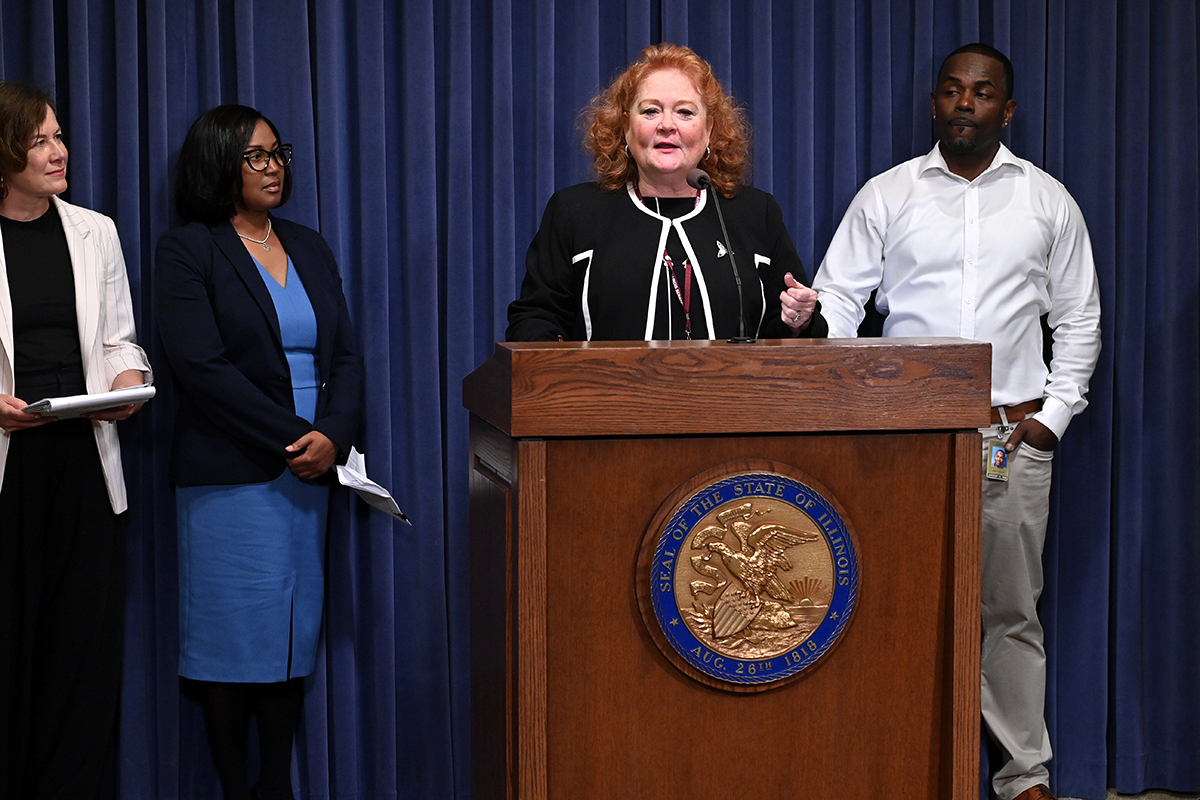
SPRINGFIELD – Acknowledging a greater need for educational opportunities for young adults in custody, State Senator Laura Murphy is leading a measure to bring emerging adult programs to the Illinois Department of Juvenile Justice.
Standing alongside advocates, experts and fellow lawmakers, Murphy outlined her proposal at a press conference Thursday.
“As a state, we have a duty to ensure young adults in custody have the tools they need to thrive when they return to their communities,” said Murphy (D-Des Plaines). “Emerging adults deserve a fresh start when they leave custody, and this measure will put them on the path to successful reintegration.”
The measure would allow the Department of Juvenile Justice to establish emerging adult programs for individuals ages 18 to 21 who have been committed to the Illinois Department of Corrections. This would allow qualifying 18- to 21-year-olds to transfer to DJJ facilities to participate in developmentally appropriate educational services as well as holistic services. These services include individual or group therapy, case management, vocational training and higher education opportunities.
"As a person who was incarcerated as a child, I would have loved to have the educational opportunities this bill would provide,” said James Swansey, policy manager at Restore Justice. “On behalf of Restore Justice, we are glad to stand in support of Senate Bill 426, and we appreciate Senator Murphy championing this bill.”
Program participants would have to qualify based on eligibility criteria set up by the DJJ and IDOC. Transfer policies and procedures would be established by an intergovernmental agreement set by the two agencies.
“The introduction of this bill marks a significant milestone in expanding programs for young adults in our custody to create opportunities for growth, transformation, and rehabilitation,” said IDOC Director Latoya Hughes. “We extend our sincere gratitude to Senator Murphy for her forward-thinking leadership and commitment to brighter futures for our communities.”
Senate Bill 426 awaits further consideration from the Senate.













 © 2026 Illinois Senate Democratic Caucus
© 2026 Illinois Senate Democratic Caucus